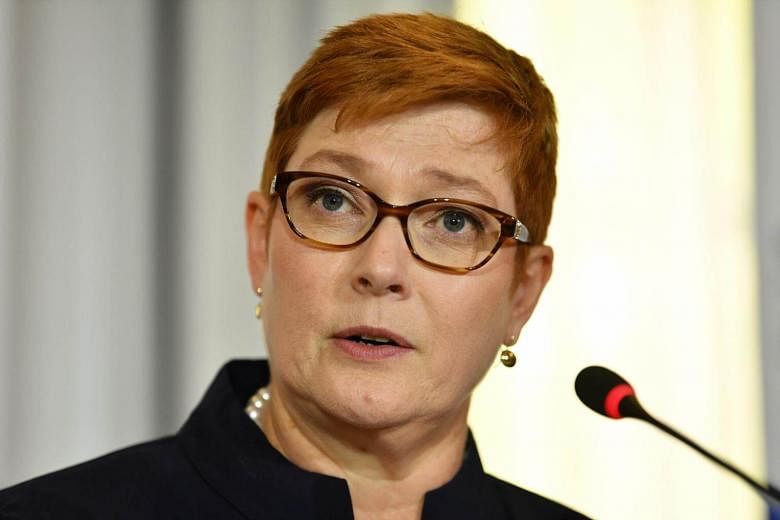SYDNEY • Australia yesterday announced a diplomatic boost to "turbo-charge" its China relations as it seeks to mend ties damaged by foreign interference concerns and a 5G ban on Huawei.
Canberra unveiled plans for a new foundation to supersede the Australia-China Council, its long-time primary platform for relations with its largest trading partner.
The government also announced that career diplomat Graham Fletcher, a China expert and Mandarin speaker, would replace Ms Jan Adams as Australia's ambassador in Beijing. Ms Adams had served in the role since 2016.
Foreign Minister Marise Payne said the National Foundation for Australia-China Relations would receive A$44 million (S$42 million) over five years, significantly broadening the remit of its predecessor. She said the more than 40-year-old council had remained "static even as China has transformed".
Ms Payne said the "substantially increased" funding would allow the new body to "move beyond the council's current focus on education, culture and the arts, to also promote Australian excellence in areas such as agriculture, infrastructure, health and ageing, and the environment and energy".
"It will harness efforts of the private sector, peak bodies, NGOs, cultural organisations, state and federal agencies and the Chinese-Australian community to turbo-charge our... effort in engaging China."
While noting that the two countries "share common objectives" in many areas, Ms Payne said there were "different perspectives on some important issues".
Bilateral ties have soured, notably since Canberra passed sweeping national security reforms last year to strengthen foreign interference laws, calling out China as its primary concern, and setting off a string of diplomatic flare-ups.
Senator and one-time opposition Labor power broker Sam Dastyari was forced to quit politics in 2017 over his links to Chinese billionaire Huang Xiangmo, a permanent Australian resident who last month was banned from returning to the country following scrutiny of his Communist Party ties.
Beijing has dismissed the claims of political interference as paranoia and hysteria.
Australia last year also announced guidelines for contractors to build 5G mobile networks that effectively blocked Chinese telecoms giant Huawei.
Canberra cited intelligence agency warnings against using vendors subject to "extrajudicial directions from a foreign government".
Mr Mike Burgess of the national cyber-security agency, the Australian Signals Directorate, said that 5G will be "critically important" to Australia, with the future technology enabling key infrastructure, like power grids.
"So high-risk vendors for us are categorised as vendors that actually have headquarters in countries, where those countries have capability, form and intent and coercive laws that compel their companies to cooperate on matters of national intelligence," he told the Sydney-based think-tank the Lowy Institute on Wednesday.
AGENCE FRANCE-PRESSE

